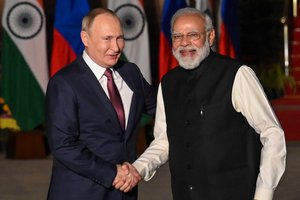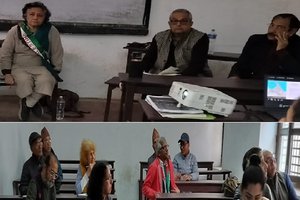Dipak Gyawali

Navigating An Uncharted, Unravelling World Order
The subject of decline of great powers, indeed of civilizations, has been of interest to many scholars; and it might be useful to focus on the gist of what they had to say before using those insights to try and make sense of the here and now.
By Dipak Gyawali Jun 19, 2025

Overcoming Indo-Pak Conflict The Dara Shikoh Way
This is not the first ceasefire since 1948, and will probably not be the last either. All with the exception of 1971 (and Bangladesh liberation) happened after strong international pressure. The current one is all the more surprising with Trump’s short intervention.
By Dipak Gyawali May 13, 2025
Re-Thinking Democracy: Why South Asians Are worried
The basic idea of the gathering was to reflect on the state of democracy in their respective countries and to explore ways in which the core values of that imported style could be rescued and melded with democracy’s richer forms of indigenous grassroots struggles happening all over South Asia.
By Dipak Gyawali Mar 17, 2025
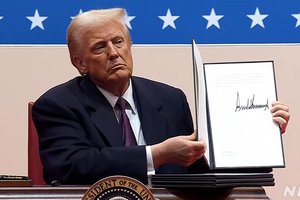
What Might The Age Of Trump Look Like?
The course corrections that Trump 1.0 as the 45th president attempted were both far-sighted and also myopic. He had already gone down in history as the first US president in many decades who did not start a new foreign war, even though he inherited many what he called “forever wars” from his predecessors, and the resource hemorrhaging they entail from which he has promised to pull out.
By Dipak Gyawali Jan 22, 2025
Kathmandu Dialogue With Dugin
Dugin is a product of lived Russian history. Though born into a family of a Soviet military intelligence officer, he came of age during the period that Gorbachev has termed Brezhnevite stagnation when the Soviet communist system was failing economically, culturally and politically. The youth were looking for alternatives across the spectrum from the occult to the irridentist and much in between.
By Dipak Gyawali Dec 25, 2024
Bioregionalism Satsang
For bioregionalism to succeed in making any headway in South Asia, education must be de-Macaulay-ized to give space to traditional and local knowledge more in tune with bioregional concerns. Democracy that has been hijacked by rapacious business interests must give way to Gandhian Gram Swaraj and traditional decentralized governance structures.
By Dipak Gyawali Sep 27, 2024
Reframing Wicked Water Problems From An Eco-centric Perspective Under Climate Change Uncertainties
The statement “Water if Life” invites a complacent shrug from business-as-usual folks for its banality but it invokes a sense of awe from those who are worried about its increasing degradation from myopic mismanagement of at least the last half century.
By Dipak Gyawali Sep 16, 2024
Rejuvenating Environmentalism In South Asia
Globally, things are not much better either. When it comes to violent conflicts such as Ukraine or Gaza, international organizations such as the UN seem powerless to do anything (except when it was big powers misusing UN’s legitimacy in Korea or Afghanistan).
By Dipak Gyawali Aug 21, 2024
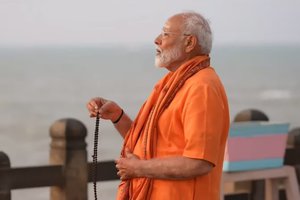
Did Modi Lose Even When Winning?
Hinduism is really not a religion but a supermarket of many religions and paths that differ more from each other thanMuslims differ from Christians. Modi and his BJP championed one brand that goes against the Hindu practices of others, including Tantrik/Shaivite/Buddhist-mixed Nepal, Bihar, Bengal, Assam and South India. His personalizing Ram Mandir at Ayodhya irritated even the Shankaracharyas.
By Dipak Gyawali Jun 12, 2024
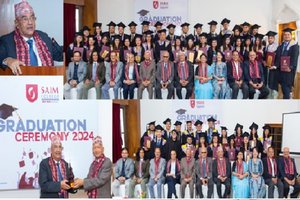
As You Step Out Into The Real Wide World Of New Challenges…
My early job as an engineer was in bringing electricity to Dandeldhura some four decades ago. It was tough because one could find nothing, not even a shovel or nuts and bolts in Mahendranagar: one had to go to Palliya crossing the jungle where dacoit Phulan Devi was lurking, or even go to Lucknow for such pieces of equipment.
By Dipak Gyawali May 23, 2024
Unfolding International Disorder & What It Portends For Small Countries
Both these conflicts did not suddenly start now: they have old antecedents going back to the post-World War-II defined Bretton Woods world order, its slow unravelling since1971 with Nixon abandoning the Gold Standard, and its accelerating decline at the start of this century with America breaking its promise to Gorbachev not to expand NATO eastwards.
By Dipak Gyawali May 08, 2024
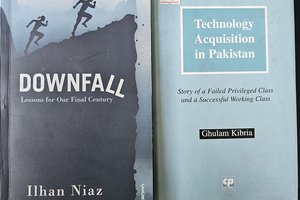
Maldevelopment And Technology: Ethos Harbingering Coming Apocalypse
Drawing on insights from scholars of yore – Herodotus, Ibn Khaldun, Voltaire, Malthus, John Stuart Mill and Darwin – and referenced with 206 detailed endnotes for a book of only a hundred pages, his first chapter begins by debunking the widely held belief that the impending crisis was unforeseen.
By Dipak Gyawali Apr 03, 2024

Remembering An Inspiring Karma Yogi
The Swiss in Nepal were about to celebrate the 40th anniversary of Swiss-Nepal cooperation; and with Nepal reverting back to multiparty democracy, there was a growing debate in Switzerland about what development cooperation was and should be.
By Dipak Gyawali Jan 09, 2024
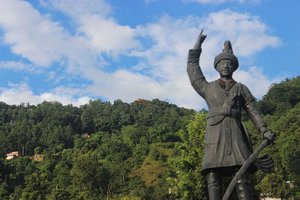
New World Disorder And The Case For Ideology
The only difference this time is the rise of the non-West – China, Russia, India and rest of the BRICS –who are also entering into the fray for resources and markets. And what they, having more or less broken the manufacturing and military monopoly of the West, bring to the table are civilizational values very different from the Judeo-Christian ones of the Collective West. How that will shape the new world order is yet to be seen.
By Dipak Gyawali Dec 13, 2023
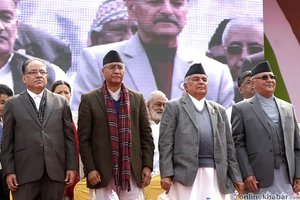
Loktantra’s Moral Turpitude
Alas, it has taken hardly a half dozen years – and two parliamentary elections under this dispensation – to see all hopes of any decent governance dashed. These years have resembled a bad tele serial of unending scams and corruption at the highest level of parties and governments they lead.
By Dipak Gyawali Nov 06, 2023
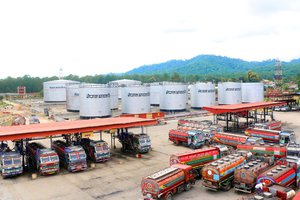
Will Nepal Leapfrog In Its Mobility?
Currently Nepal’s fossil fuel addiction is severe: scholars at the Center for Renewable Energy at Pulchowk Institute of Engineering calculate that the country spends over 170% of its total goods export earnings to import petroleum products.
By Dipak Gyawali Sep 20, 2023
Revisiting Water-Induced Disasters
The kind of “flood” Kathmandu and other cities experience, with streets running full of water as if it were a river, is not because of too much rainfall: indeed, during the most recent flooding one saw in Kapan rainfall was not the extreme of cloudbursts but a normal monsoon event.
By Dipak Gyawali Aug 16, 2023
Latest Updates
- Just being born in Nepal does not make one a Nepali: former King Gyanendra Shah
- 20 hours, 49 minutes ago
- Siddhababa Tunnel Makes A Major Milestone
- 2 days, 5 hours ago
- PM Oli Returns Home Attending UN FFD4 Summit
- 3 days, 3 hours ago
- Journalist Pathak ordered to be released on bail of Rs 25,000
- 4 days, 4 hours ago
- Tik Talker Rama Basnet released on bail of Rs 30,000
- 1 week, 4 days ago
- PM Oli Urges Evey to Make Yoga a Daily Life
- 2 weeks, 2 days ago
- Neal’s First Flyover Construction Completed
- 2 weeks, 4 days ago
- Court Orders Two Important Order in Favor of Press Freedom
- 2 weeks, 4 days ago
- Ministry of Foreign Affairs issued A Travel Advisory for the Middle East
- 2 weeks, 5 days ago
- Government Has Started The Implemenation of Resolution of Sagarmatha Sambad: Minister Shahi
- 2 weeks, 6 days ago
